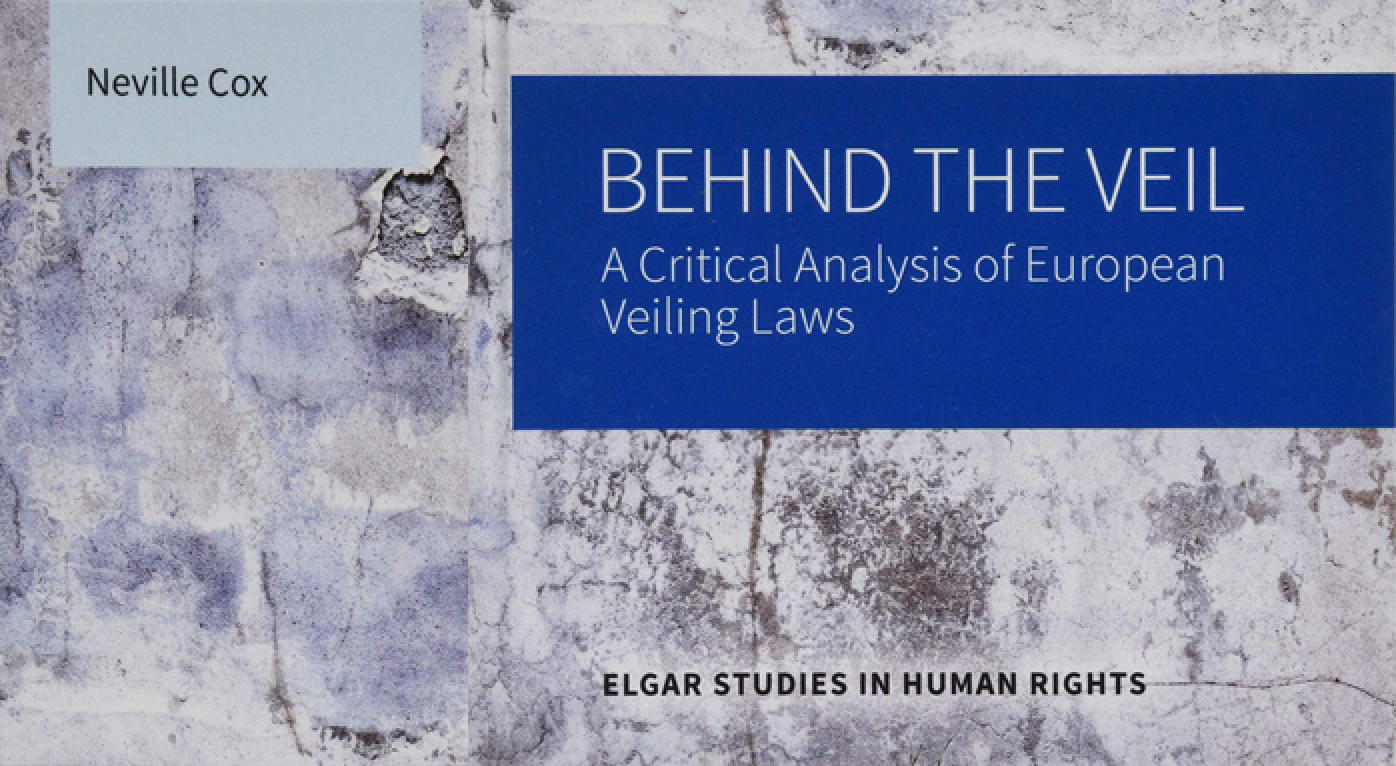School of Law Author Series 2020/21. Seminar 17 with Professor Neville Cox
School of Law Author Series 2020/21 - Conversations with Donna Lyons. Seminar 17 with Professor Neville Cox.
Neville Cox, Professor of Law at Trinity College Dublin School of Law, will speak about his book, ‘Behind the Veil: A Critical Analysis of European Veiling Laws’ (Edward Elgar 2019) on 22 December. We are also delighted to welcome Dr. Myriam Hunter-Henin (UCL Faculty of Laws) to the discussion.
Date and time: 6pm (Dublin), Tuesday, 22 December 2020
Attendees can join the webinar directly via Zoom and the event will be simultaneously live-streamed on the Law School Facebook Page. This event is free and open to all and there will be an opportunity for Q&A. The webinar can accommodate 100 attendees and participants will be admitted on a first come, first served basis. If the webinar fills to capacity, it will be possible to watch the Facebook Live Stream, and a recording will also be made available following the event. We look forward to seeing you there!
Neville Cox is a Professor of Law in the Trinity College Dublin School of Law and recently held the position of Dean of Graduate Studies of the University. He is a Provost Teaching Award winner and a Fellow of the University.
About ‘Behind the Veil: A Critical Analysis of European Veiling Laws’
Since the early 2010s, an increasing number of European countries have passed laws that prohibit the wearing of various kinds of Islamic veil in particular circumstances. This insightful book considers the arguments used to justify such laws and analyses the legitimacy of these arguments both generally and in regards to whether such laws can be seen as justified interferences with the rights of women who wish to wear such garments. This timely book considers the most recently passed European laws that target Islamic veiling. The author situates the justifications for anti-veiling laws in the context of a careful analysis of the reasons why women wear veils, and considers these justifications by reference to emerging debates surrounding the relative value of liberalism and human rights, multiculturalism, and the need to protect 'traditional values'. The book concludes that these laws are best viewed as symbolic strikes at a recognisable symbol of an ideological opponent, theorising that their principal purpose is to enable particular countries to reaffirm traditional values in a context of increased domestic opposition to multiculturalism. This engaging work will be valuable reading for students and scholars of human rights law, Islamic law and those interested specifically in the laws and regulations surrounding Islamic veiling around the world.


